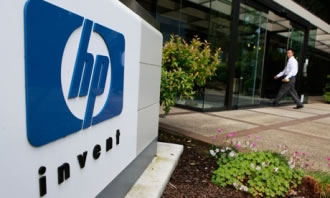Computer manufacturer Hewlett-Packard has announced plans to build servers utilizing low-energy processors licensed by ARM, making the servers cheaper to run than current alternatives.
The new chips, produced by Calxeda using its energycore system-on-a-chip (SoC) design, draw as little as 1.5-watts, or around one-tenth the power consumption of even the most efficient server processors currently in use. A complete server node with 4GB RAM and an SSD consumes as little as 5-watts, and because this equals less heat, HP can use more of them in a single enclosure.
Each complete system will house 2,800 servers in one single rack, enabling them to provide massively parallel throughput. The Redstone platform itself is based on a 4-U rack-mount server chassis, with 72 server boards inside, each running four of Calxeda's 1.4GHz processors, as well as 4GB of RAM and 4MB of L2 ECC cache.
"A single rack of HP's Calxeda servers delivers the throughput of some 700 traditional servers and dramatically simplifies the infrastructure needed to hook them all together and manage the cluster," said Barry Evans, CEO of Calxeda.
"There is always a trade off, you have less electrical draw but you have less processing power," David Calmers, HP UK's chief technology officer for servers, storage and networking, told the BBC. He also announced plans to offer Intel's Atom-based processors as an energy-efficient alternative to ARM processors in upcoming server models as well.
HP was keen to point out that ARM-based chips should be considered an alternative rather than a replacement to Intel's highly regarded and more powerful products. The ARM-based chips will be ideal for delivering static web pages but not tasks involving heavy number crunching which are more suited to Intel's product offerings.
"We commend HP's innovation in this space and the investment being made to accelerate the development of a new class of compelling, energy-efficient servers," said Lance Howarth, ARM's executive vice president of marketing. "We believe that ARM low-power technology and broad partner ecosystem will provide the ideal foundation for HP to drive a new wave of innovation in the server market."
ARM announced its upcoming ARMv8 64-bit architecture earlier this week, and recently reported outstanding third-quarter results despite a market slowdown across the entire industry.
